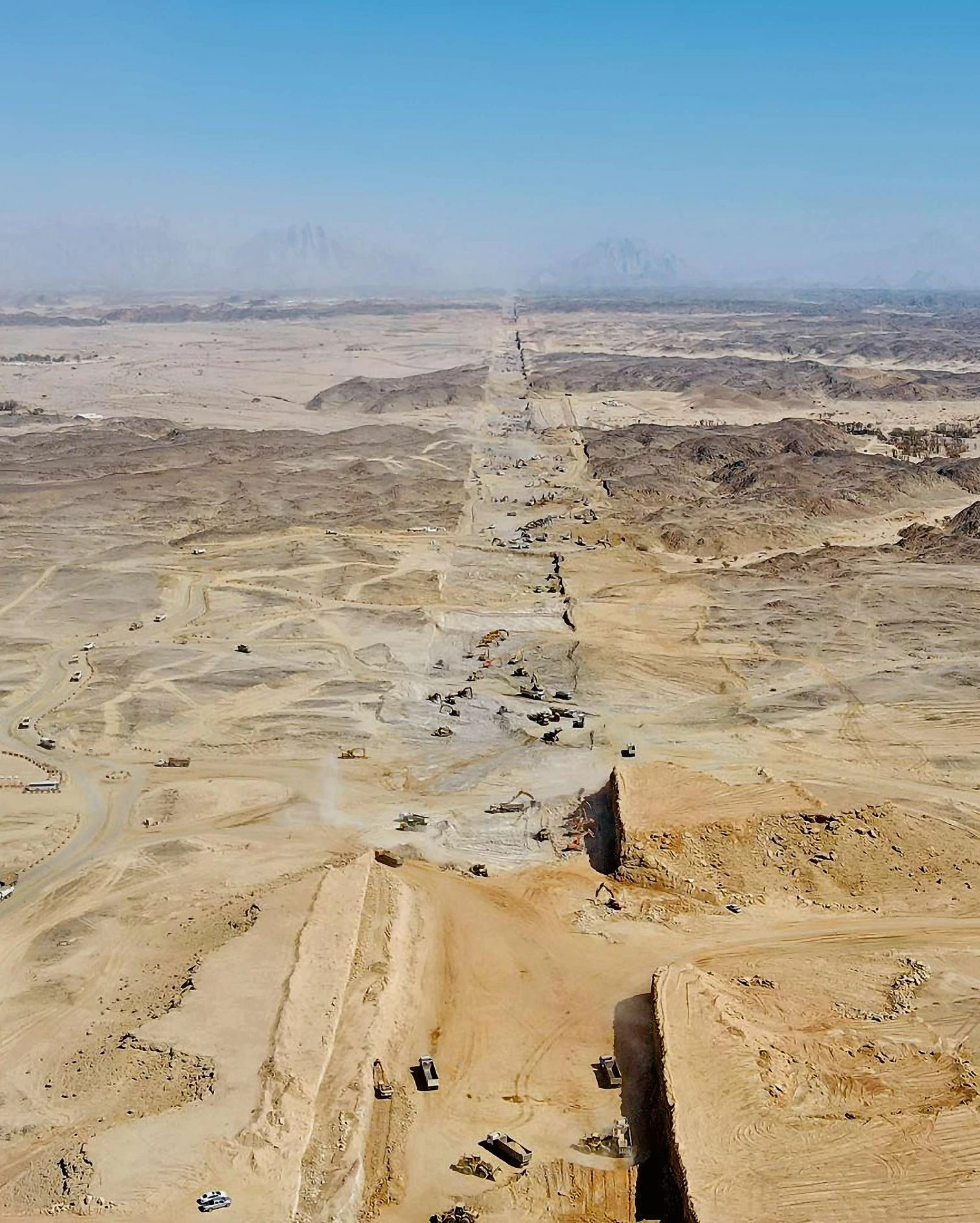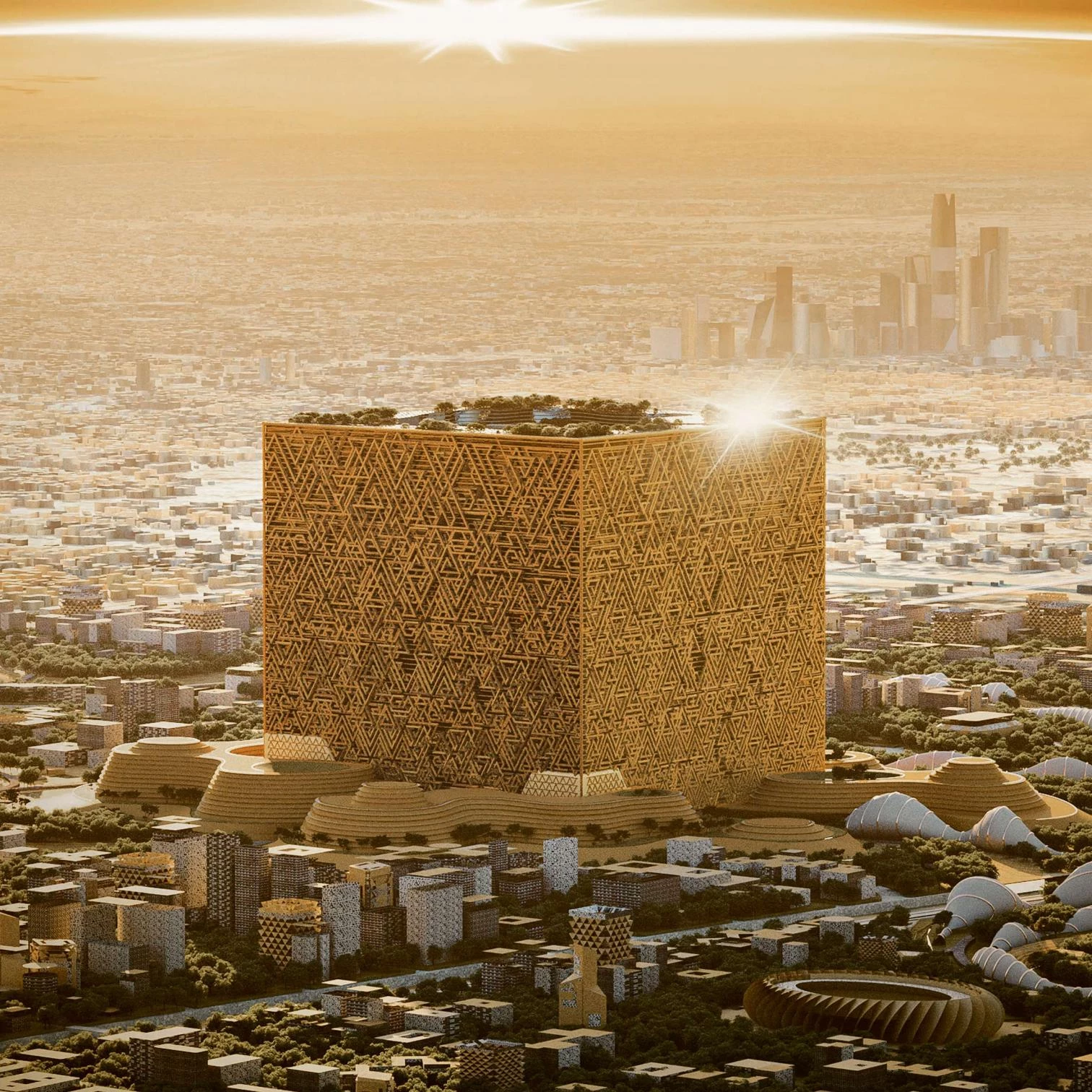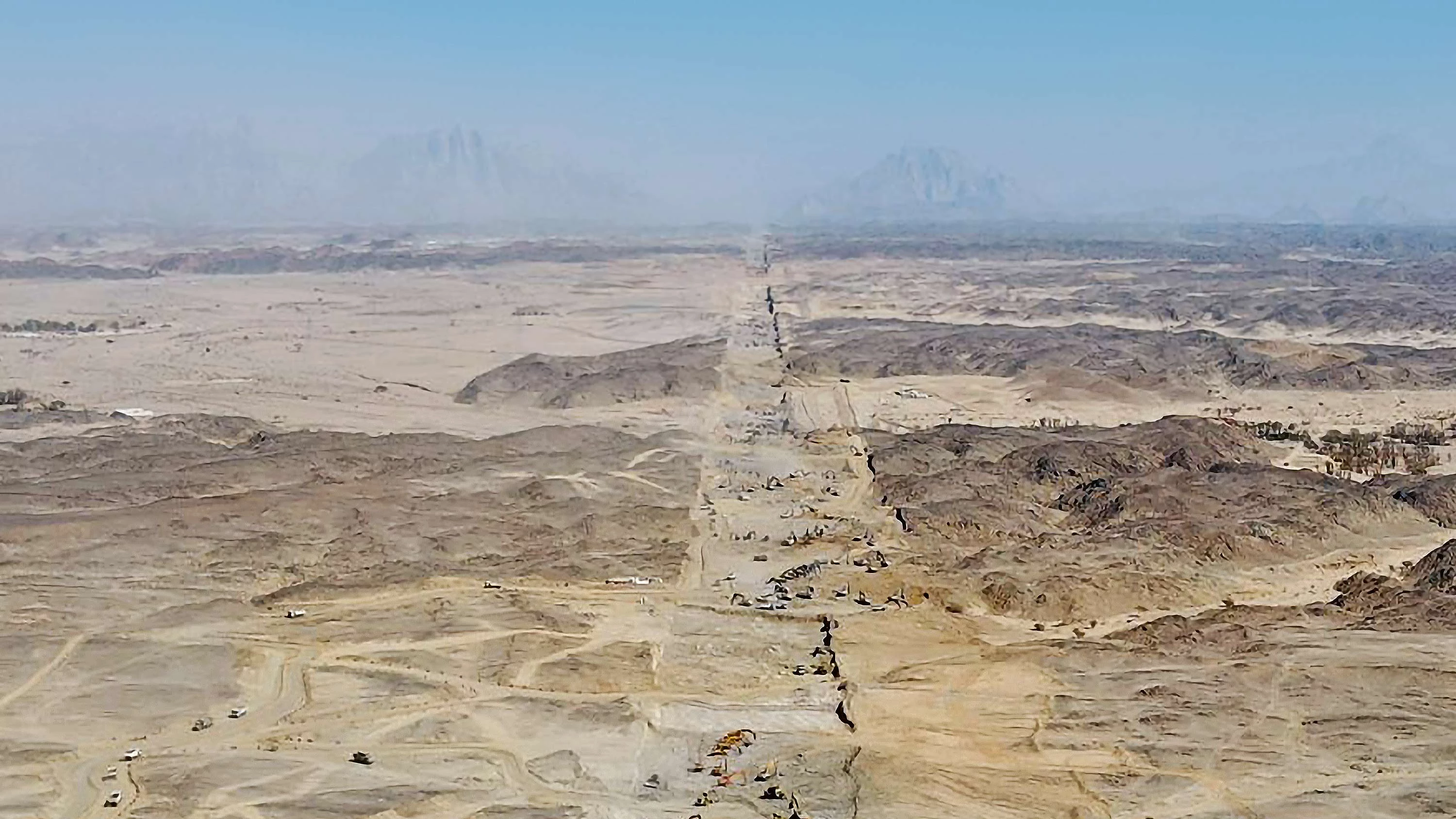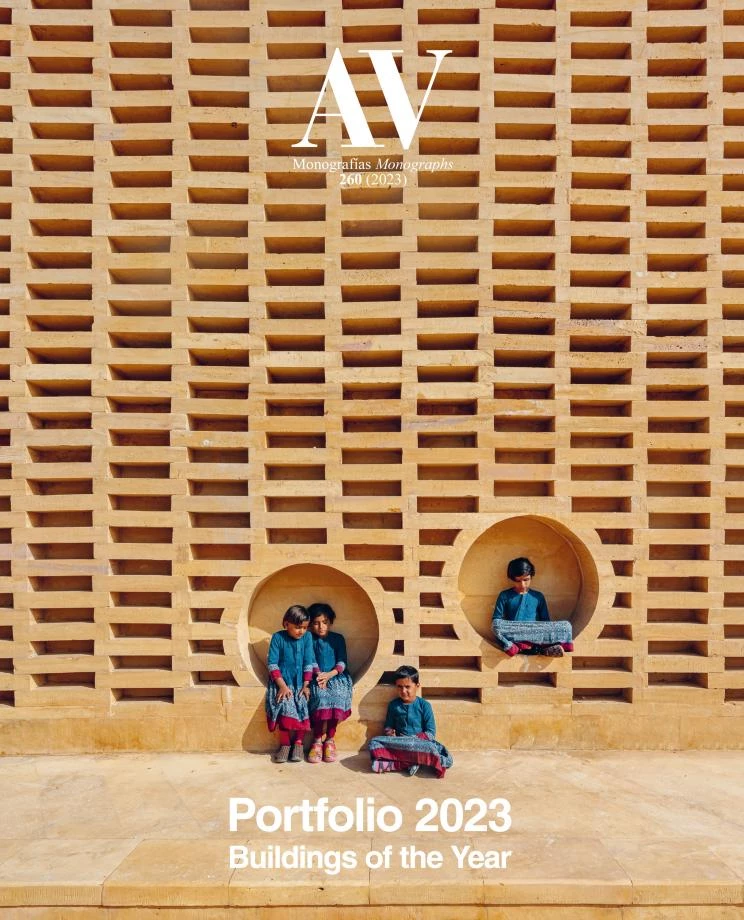
Obras del proyecto The Line en la zona económica Neom © OTskydrone
The desert kingdom builds on the sand. Like other petrostates, Saudi Arabia diversifies its economy to prepare a future without oil; like most of them, it tackles this transformation from the dirigisme of an autocratic regime; and unlike practically all of them – with the possible exception of Russia – it embarks on this shift of model with a geopolitical ambition that has shaken the international map of influences and interests. From sports to tourism and from science to culture, the visionary projects of the country are expressed through the expansion of political and diplomatic power, and materialized by a crop of constructions superlative in scale and financed with oil revenues: be it an extraordinarily long linear city or a gigantic skyscraper in the shape of a cube, the real estate adventures of the House of Saud, led today by the controversial Mohammed bin Salman, set no limits on imagination, and show the titanic scale of a strategic plan that, under the name Vision 2030, aspires to raise a material and symbolic superpower on the sand.
By the Gulf of Aqaba and close to Egypt and Jordan, the new economic zone Neom extends across the desert from the coast to the mountains. Threaded by an ecocity without streets or cars called The Line, this essential piece of the strategic plan takes to an extreme the pioneering proposal of Arturo Soria (initially tested in Madrid’s Ciudad Lineal, and that served as inspiration for the Soviet Sotsgorod of Nikolay Milyutin), building a city in a straight line with high-speed transport that will reach the farthest point of its 170 kilometers in 20 minutes. And together with this extraordinary project that has already broken ground, new works are underway: a large museum complex in Riyadh to promote visits different from those that massively reach Mecca and Medina; an imposing 400-meter-tall cubic skyscraper, the Mukaab, which is leisure-oriented and located in the capital of the country; or the countless constructions connected to the organization of the Asian Winter Games in 2029 and the bids for Expo 2030 and the World Cup of the same year.
The announced plan of turning the Saudi league into one of world’s ten best, which lies behind the signing-on of stars like Cristiano or Benzema, the creation of a golf circuit (LIV Golf, now unified with the PGA and European tours), and the launching of a new F1 prize in Jeddah are sports initiatives directed at improving the country’s image, just like the lifting of the ban on women driving or a moderate social liberalization along the lines of the Emirates or Qatar. Saudi Arabia, the first exporter and second producer of oil, also has the world’s fifth military budget, but now Bin Salman, tarnished by the assassination of journalist Jamal Khashoggi, strives to exert soft power, distancing itself from the United States and reinforcing ties with a China that staged its reconciliation with Iran, reaching agreements with Russia and approaching Brazil, India, and South Africa, the other emerging BRICS powers. The House of Saud builds with oil upon the sand, and we need to hope that the foundations of this transition will be solid.

Proyecto Mukaab en Riad © New Murabba







